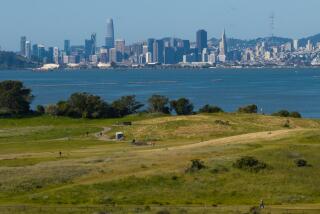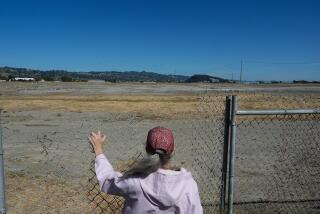City of Berkeley wants to monitor nanotechnology
- Share via
SAN FRANCISCO — The use of subatomic materials as building blocks for consumer products has turned into a big business so quickly that there is little monitoring of nanotechnology’s effects on health and the environment.
So Berkeley intends to be the first city to step into the breach and regulate the nascent but fast-growing industry.
The City Council is expected today to amend the city’s hazardous materials law to compel researchers and manufacturers to report the nanotechnology materials they are working with and how they are handling the tiny particles.
The aim of nanotechnology commercially is to develop products and materials by modifying or creating materials at the atomic and molecular level. But the effects of the practice remain largely unknown, particularly with regard to possible environmental and health problems.
“The ordinance is quite important, and I think it will be given worldwide attention,” said David Rejeski, director of the Project on Emerging Nanotechnologies, which is funded by the Woodrow Wilson International Center for Scholars and the Pew Charitable Trusts.
“This is a new industry, and there is a lack of federal and state regulations.”
Rejeski said thousands of products, including cosmetics and detergents, are manufactured using material constructed Lego-like from particles as small as one-millionth the width of the head of a pin.
There are no known businesses within Berkeley city limits working directly with nanomaterials, and the Lawrence Berkeley National Laboratory, which launched an ambitious nanotechnology program in March, is exempt from local regulations because it is part of the federal Department of Energy.
Lab officials said they would work with the city and were confident that their own regulations were stringent enough to ensure safety.
“These are very complex issues because the science being done is very complex and there are a lot of unknowns,” said Mark Alpers, deputy director of the lab’s nanotech effort, known as the Molecular Foundry. “It’s essential that proper precautions are taken while at the same time allowing important research to proceed.”
City officials said the new regulation was aimed mostly at monitoring nanotech start-ups and small businesses, rather than the national lab.
More to Read
Inside the business of entertainment
The Wide Shot brings you news, analysis and insights on everything from streaming wars to production — and what it all means for the future.
You may occasionally receive promotional content from the Los Angeles Times.










